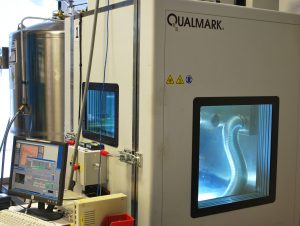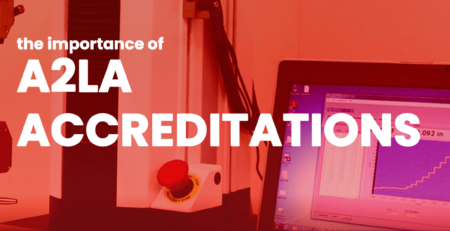HALT/HASS Testing Spotlight
Trevor Hendricks2023-05-12T08:40:52-05:00Austin Reliability Labs (ARL) performs a wide range of testing services that meet established benchmarks in a variety of industries. For these companies, we utilize our decades of experience to provide customized testing solutions that pair products with the right testing methods, one of which is HALT/HASS testing.
Highly Accelerated Life Testing (HALT) and Highly Accelerated Stress Screen (HASS) testing can be combined to push a product beyond its limits, identifying latent weaknesses in a short amount of time to improve design and ensure reliability.
WHAT IS HALT?
In HALT, a product is subjected to progressively higher levels of separate and combined stresses that extend past the product’s margin of intended operation to the point of failure. These stresses include thermal dwells combined with voltage margining and power cycling, rapid temperature transitions, vibration, and combined rapid temperature transitions and vibration.
By increasing the product’s conditions past its end-use environment to the point of destruction, it becomes possible to analyze and identify the root cause and implement possible repair and design changes. Once repaired, the stress can be increased to find the product’s next failure. The process is repeated until either the fundamental limit of the technology of the product is reached, or the failure becomes too difficult to repair.
Once the HALT process is completed and the product’s design has been upgraded for robustness, a HASS manufacturing screen can be developed to ensure that the rest of the product line continues to meet the same high engineering standards.
WHAT IS HASS TESTING?

The goal of HASS is to develop an impactful testing process that is effective in causing latent failures to become actual failures without removing a significant amount of the product’s life. This process is known as a stress screen and uses similar stresses as HALT but derated, or reduced power rating.
After the functional integrity of the product is tested, HASS testing continues with a two-step, proof-of-screen process that’s used to determine the effectiveness of the stress screen and make sure the screen did not remove significant life from the product.
HASS development was not intended to be a rigid process with an endpoint. Rather, it is a living process that may need modification or adjustment over the life of the product. As more is learned about the product over time, including the HASS results, the profile may change and evolve into an even better, more effective screen.
THE ARL DIFFERENCE
Our accredited state-of-the-art lab has partnered with Qualmark and meets the necessary requirements to be certified as a Qualmark Accelerated Reliability Testing Center (ARTC). Our lab’s certified HALT/HASS chambers are well-equipped to support your testing needs with valuable results.
At ARL, we believe that well-written and comprehensive reporting is very important and key to successful testing. When you’re looking to diagnose those manufacturing flaws and turn a prototype or existing design into a full-fledged and durable product, reach out today and see what our team of reliability testing experts can do for you.






